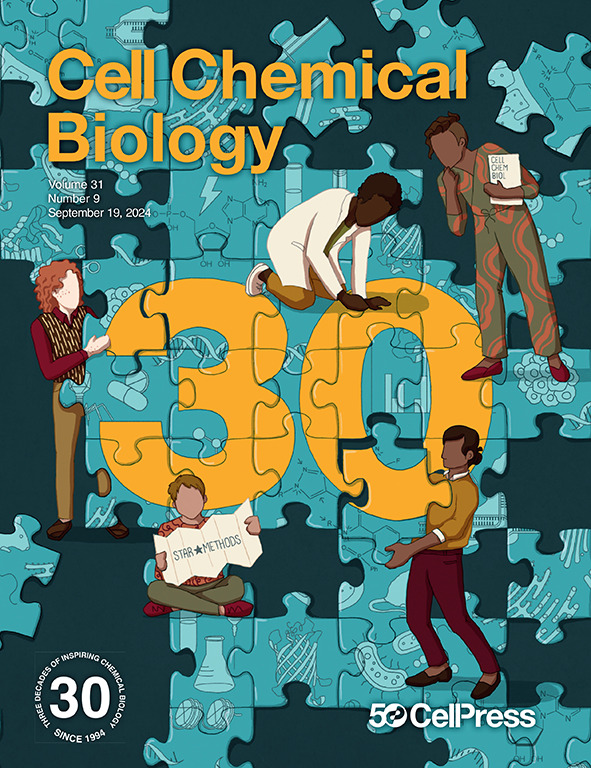In contrast with biochemistry, which traditionally studies the chemical reactions that take place in biological systems, chemical biology is a scientific discipline that focuses on the application of chemical techniques and synthetic molecules to the study and manipulation of these biological systems. It is considered a relatively new field: the most relevant chemical biology publications are Nature Chemical Biology, launched in 2005, ACS Chemical Biology, 2006, and Cell Chemical Biology, the pioneer starting in 1994. Coinciding with their 30th anniversary, the latter has just released a special issue counting on the contribution of relevant researchers in the field, from basic scientists to clinicians.
One of the voices speaking in this issue is Dr Albert Antolin’s, researcher at IDIBELL and ICO, who highlights the importance of multidisciplinarity and teamwork in the field. Dr Antolin is convinced that “chemical biology is a scientific discipline born from multidisciplinarity. Originally aimed at leveraging chemistry-based technologies to understand biology, it is evolving to increasingly harness other disciplines, from data science or engineering to cell biology and translational research towards discovering new therapeutics.”. He also says that “this multidisciplinarity is precisely the biggest strength of the field and what fascinates me the most about chemical biology, conveying the message that no individual discipline is better and that the biggest discoveries only occur when we dissolve the hard boundaries between chemists and biologists.”
The goal of Dr Antolin’s research at IDIBELL and ICO is to develop public chemical biology resources to improve reproducibility in biomedicine, discover how drugs work on a system scale to expand their use in personalized medicine, develop new strategies based on Big Data and AI for multitarget drug design, and discover new, safer, and more effective cancer treatments. Having worked in the pharmaceutical industry and academia, he is particularly interested in translational research by building bridges between applied drug discovery and fundamental questions yet to be resolved in chemical and systems biology applied to disease resolution. In his last work, published in Cell Chemical Biology, he already discovered a potential retargeting of an anticancer drug that could open new paths for the treatment of Parkinson’s.
The Bellvitge Biomedical Research Institute (IDIBELL) is a biomedical research center created in 2004. It is participated by the Bellvitge University Hospital and the Viladecans Hospital of the Catalan Institute of Health, the Catalan Institute of Oncology, the University of Barcelona and the City Council of L’Hospitalet de Llobregat.
IDIBELL is a member of the Campus of International Excellence of the University of Barcelona HUBc and is part of the CERCA institution of the Generalitat de Catalunya. In 2009 it became one of the first five Spanish research centers accredited as a health research institute by the Carlos III Health Institute. In addition, it is part of the “HR Excellence in Research” program of the European Union and is a member of EATRIS and REGIC. Since 2018, IDIBELL has been an Accredited Center of the AECC Scientific Foundation (FCAECC).

